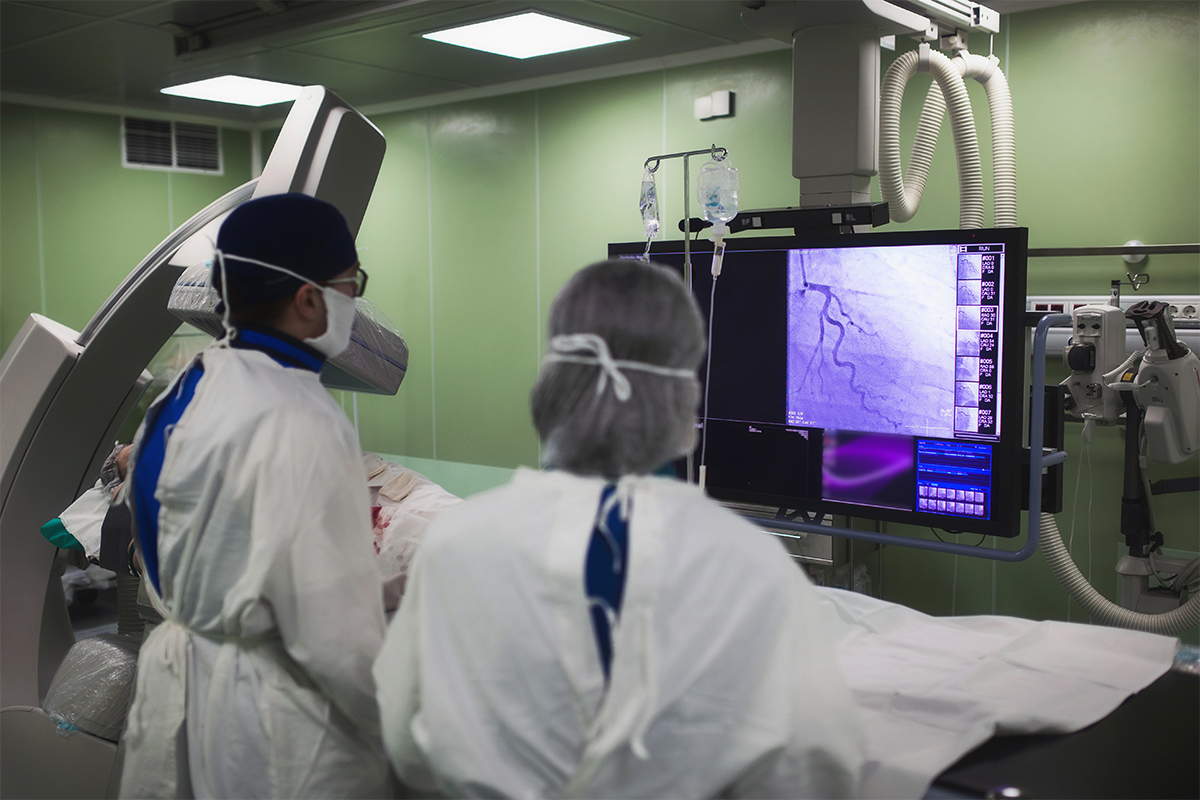FAQs For WIC Fellows Who Are Pregnant or Thinking of Becoming Pregnant
When should I tell my program director I am pregnant?

The best time to tell your program director you are pregnant is when you feel comfortable telling her or him. There is no right time; however, letting your program coordinator(s) know on the earlier side can be advantageous for moving around rotations with a heavier call schedule and scheduling lighter/research rotations around the time of your delivery.
For me, I was in my second trimester once I started fellowship and was anxious about telling my program director. I reached out to advanced female fellows who advised me to let the coordinators know first, followed by the program director once I felt ready.
I did both within the first two months of fellowship and felt relieved at how natural they made this phase of life feel. "We expect many of our fellows to have children, so we are not surprised," they responded. This may not be true for all fellowship programs, but it should be.
How do I navigate finding out how maternity leave works at my program and if I have a choice for more leave?

Many of us who have reached this level of training are also in the phase of life where we are thinking of starting a family. However, no standardization of parental leave exists on the national level.
I went to residency where residents received four weeks of paid leave for a vaginal delivery, and six weeks for a cesarean section. As a first-year fellow in cardiology, the ACGME gave me seven weeks of paid leave and then I had the option of adding on vacation to that and/or unpaid medical leave. Speak with your coordinators (they will know the most) about your options.
You can still graduate with your class if you take maternity leave in addition to your normally scheduled vacation. Talk with other female fellows who are more advanced in their training who have had kids. Their advice is invaluable.
I am pregnant and afraid of radiation exposure in the cath/electrophysiology lab. Is lead enough to keep the baby protected or should I try and rearrange my rotations?

I have spoken to a handful of women interventional fellows and attendings who continued to work in the lab throughout their pregnancy.
In addition to the standard required radiation badge, they wore an additional belly radiation badge +/- double lead and were routinely monitored. They never registered any radiation and went on to have healthy babies. There should be a radiation officer at your institution or program that can provide you further specifics on safety precautions.
Also, there is a SCAI consensus document that provides the data on risk, education and safety precautions. For me, my schedule was initially set to be on cath from weeks 36 – 40 of pregnancy.
I was given advice from other female fellows that I should switch my schedule not due to radiation but from the 1) physical stamina of standing all day, 2) standing all day while wearing the weight of the lead, and 3) minimal to no breaks to eat in between procedures.
I am thinking of doing an invasive subspecialty fellowship. How important is it to plan a pregnancy around this?

Interventional fellowship can be either a one-year, interventional-only fellowship, or a combined two-year fellowship with a structural year. I am not pursuing interventional; however, I asked female interventional fellows, attendings and program directors about their perspectives.
If you are planning on completing a one-year fellowship, you have 12 months focused on gaining as many technical skills, troubleshooting skills and exposure to the wide range of cases in the lab.
Maternity leave would cut into this precious time and you may find yourself stressed in returning to work quicker than you would want, which you may possibly regret later. My view is that you probably can have it all – but maybe not all at the same time.
The bottom line is to do what is best for you and your family.
From one electrophysiology program director, pregnancy is strongly encouraged if that is the desire of the fellow. Electrophysiology fellowship is a two-year program, and even with pregnancy and maternity leave, there is no "short-changing" on the type of training you will receive.
If further time is needed, this can be planned with additional months at the end of training without issues. Again, the advice is similar to the above: reach out to other female trainees who had children during this time for more specific advice to your program, as they may vary.
Disclosure: This piece was written based on my personal experience with pregnancy as a first-year fellow and from the opinions of other female advanced fellows, female attendings and subspecialty program directors. For more advice on pregnancy during cardiology training, check out these other ACC articles:


